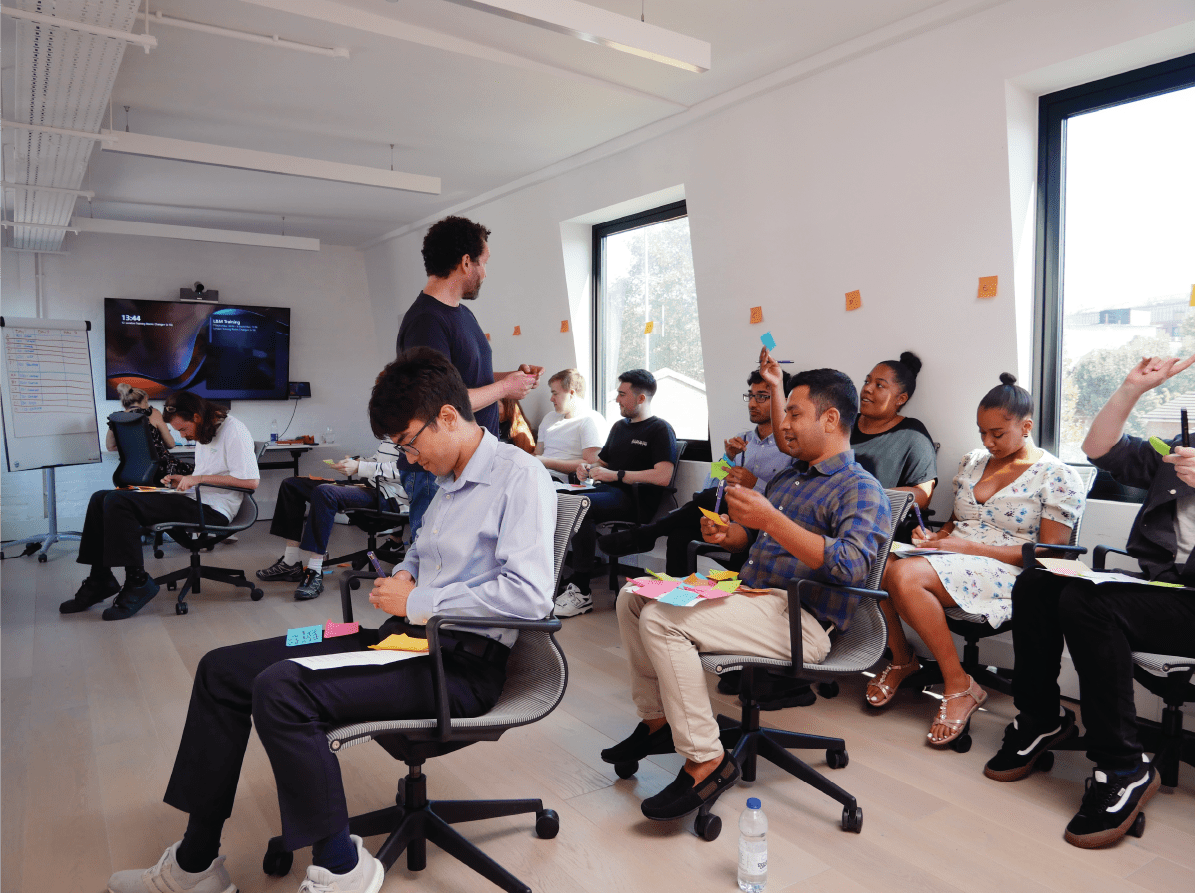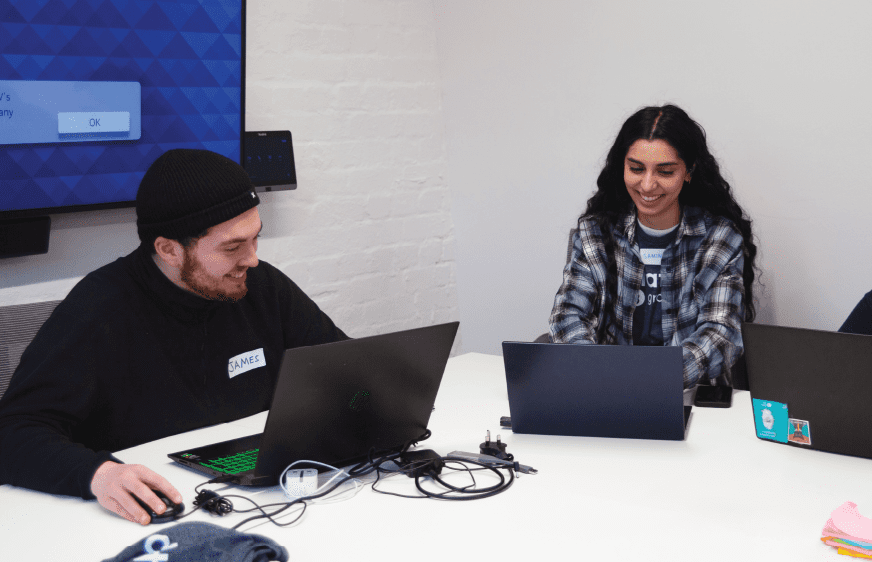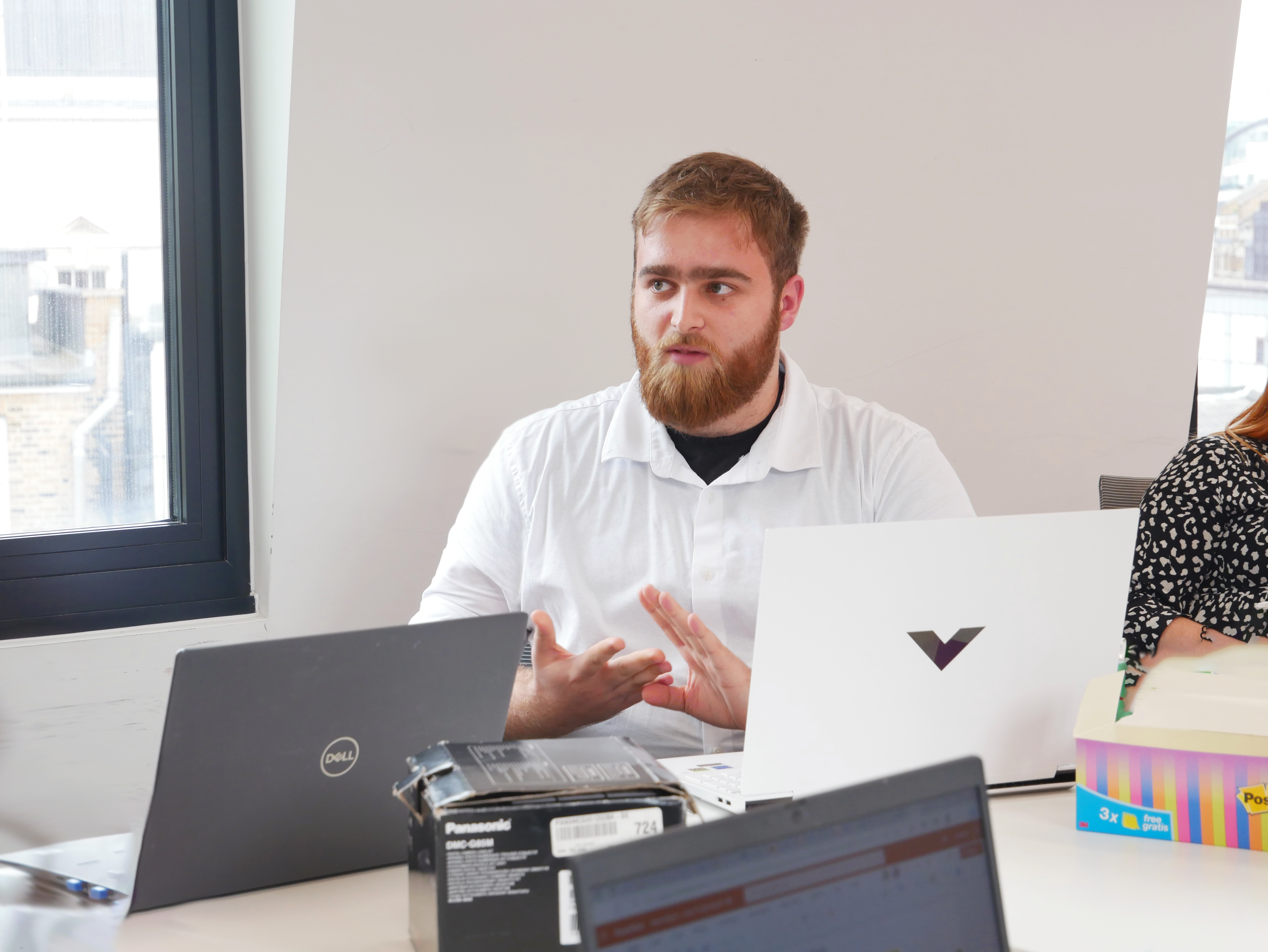
Our top tips for new applicants
Grayce’s talent team are always on the lookout for bright new emerging talent.
Our Development Programmes are designed to shape graduates into future leaders by offering holistic training, hands-on project experience, career coaching and wellbeing support. However, we understand that interviewing for a new job can be both tough and overwhelming. We spoke to Harriet Hughes, Talent Acquisition Specialist at Grayce, who shared her top 5 tips for new applicants.
ONE: Do your research on the organisation you’re applying to!
Be resourceful! A lot of organisations will provide you with a one-pager about the company or link you to their website to help with interview preparation. But if you really want to impress, you need to show your ability to use your own initiative to find out further information regarding the company through sources such as LinkedIn, YouTube or even speaking to existing employees ahead of your interview (gain extra brownie points by checking the interviewer’s LinkedIn profile beforehand!).
But remember, whilst an interview is a chance for you to ask questions, it does not leave a good impression if you do not know anything about the organisation you are applying for.
TWO: Be your professional self
Employers will want to know more about you as an individual including your motivations, aspirations and career goals. The key is to build rapport from the start. Whether you are attending an in-person or virtual interview, this isn’t about treating an interviewer as if they are your friend, but about being respectful and warm throughout.
Eye contact is important, this can be particularly tricky if you are attending a virtual interview so practice looking into the camera lens when speaking, rather than staring at your screen. Smile too! Studies show that the act of smiling actually does make you feel happier and more at ease, even if you don’t feel it.
THREE: Prepare your elevator pitch and practice it
“Can you tell us a bit about yourself?” is one of the most challenging questions to answer, how do you explain who you are in a couple of sentences? If you haven’t prepared an elevator pitch, your answer to this question could be poor. It is likely you will ramble, go off on tangents and potentially lose your professional self along the way. Try to avoid slang and stick to a professional tone and vocabulary.
We recommend you summarise your university experience, including a few key skills achieved here, your work experience (again, key achievements/relevant transferable skills to the job you are applying to), address why you want the role (be specific, what excites you about the company or opportunity?) and finally, know how to finish, address briefly what you enjoy doing in your free time.
FOUR: Nail the STAR approach for those competency questions
“Tell us about a time where you demonstrated…” are very common in interviews, these are designed to gauge your ability to handle role-specific situations. Usually, interviewers are looking for examples of skills/experiences that align to that on-the-job advertisement or job description (make sure you’re familiar with this!). The STAR approach is a way to structure your answers and helps to organise your thoughts and present back a methodical answer. STAR stands for Situation, Task, Action and Result.
Situation is the context of the example you are giving (e.g. was it through university or work experience, was it a team project or independent project, how many people were in the team etc.). Task is the task you have been given specifically (remember, the interviewer wants to hear about what YOU were responsible for, so use “I” and “me” rather than “we”. Action is the steps you took to address the task you were given, make sure to talk through this in detail, including any tools/systems you used, how and why you approached the task in that way too. Result is the outcome of all of that hard work! This should be a tangible outcome (ideally using facts/figures if possible – e.g. “saved £X” or “delivered X weeks before deadline” or “achieved X grade”), it should also be a positive outcome, but also anything you might do differently if you were to do this task again.
FIVE: Always have questions prepared for your interviewer
You will almost always be asked if you have any questions at the end of an interview, so don’t be caught out! It’s also important to remember that some of the questions you go in with might be answered as you go through the interview itself, so have backups too. Again, show initiative, some of the best questions I have been asked are the ones I wasn’t expecting!
Do still ask the straightforward questions if these haven’t been addressed (e.g. salary/benefits/location etc), but mix in some of your own. For example, you may want to ask the interviewer about a particular aspect of their role in the organisation or ask for their top tips to succeed in the role you are applying to.
Remember, this is your chance to understand if the role is right for you as much as it is for employers to determine your suitability for the role!




